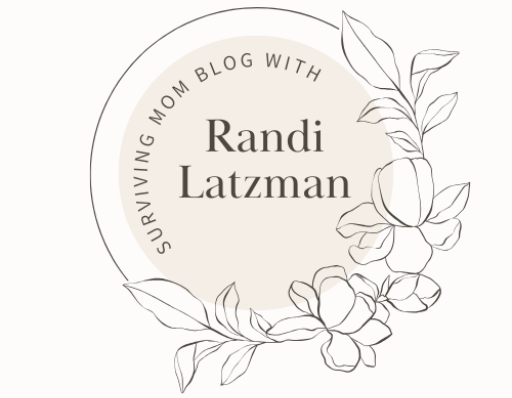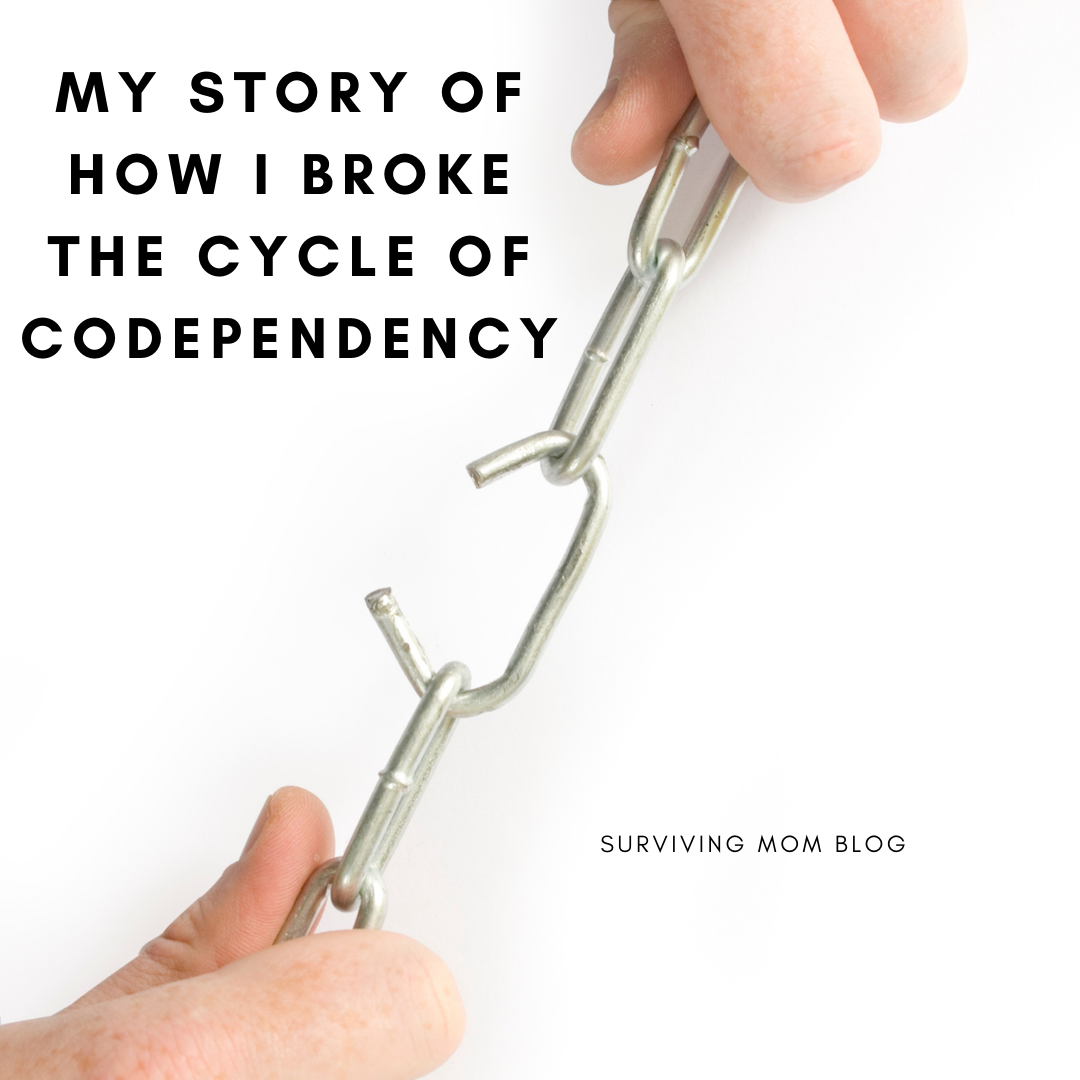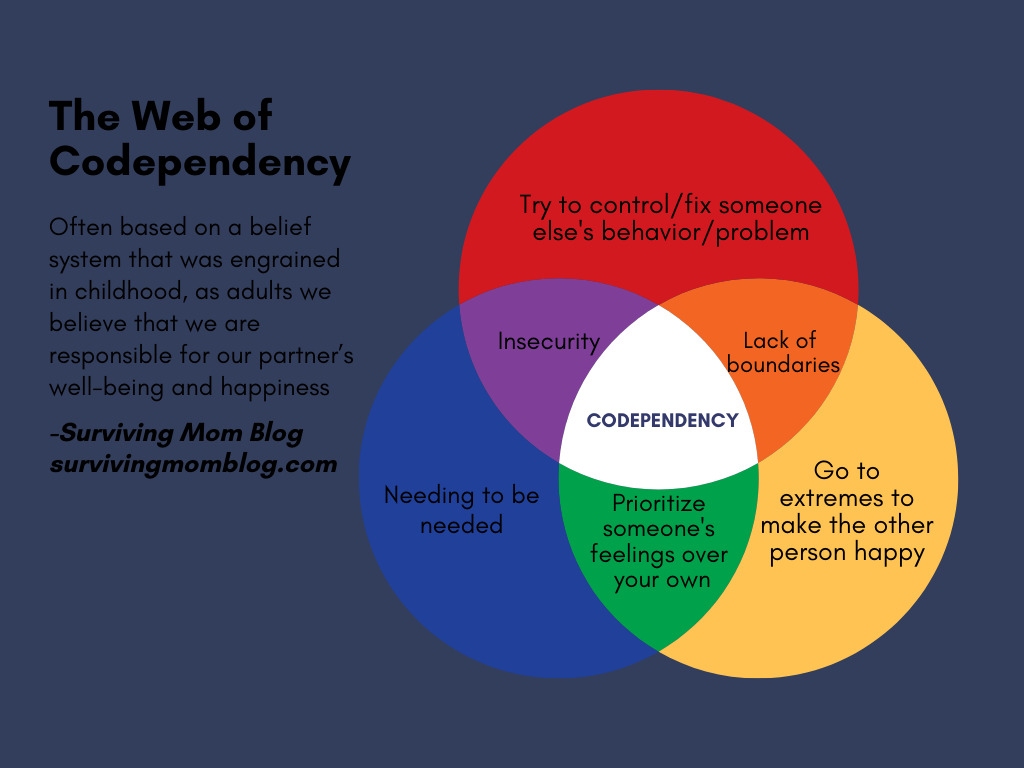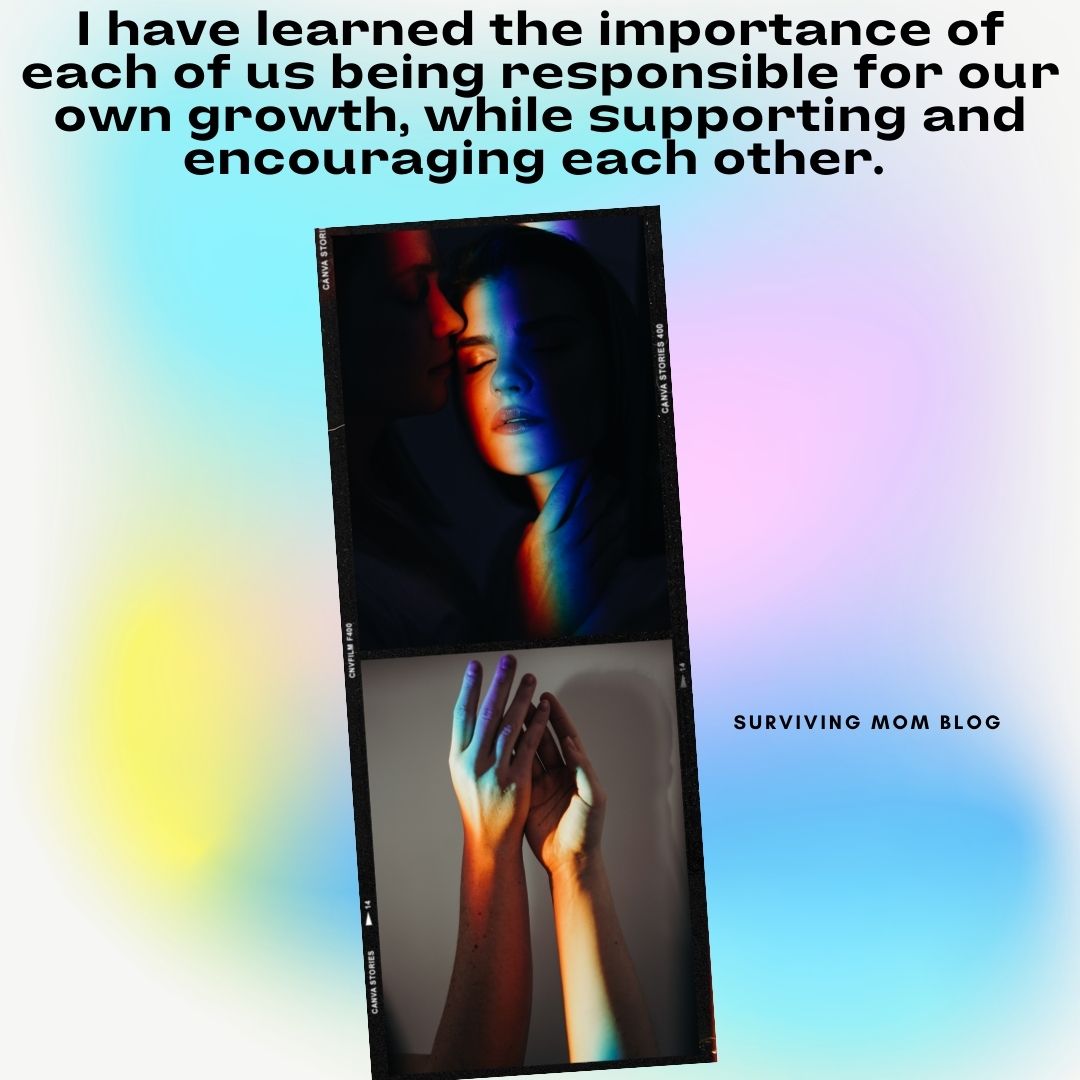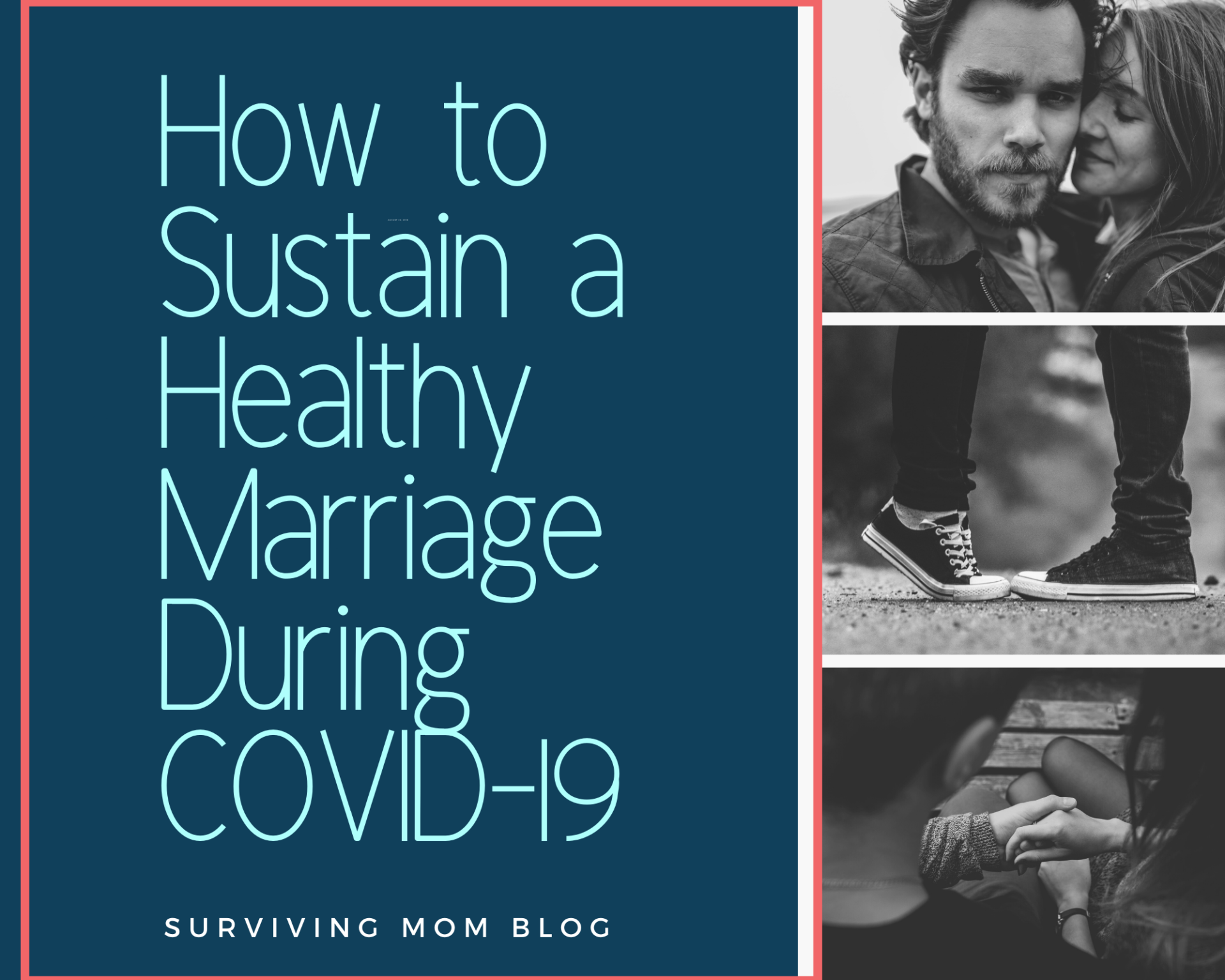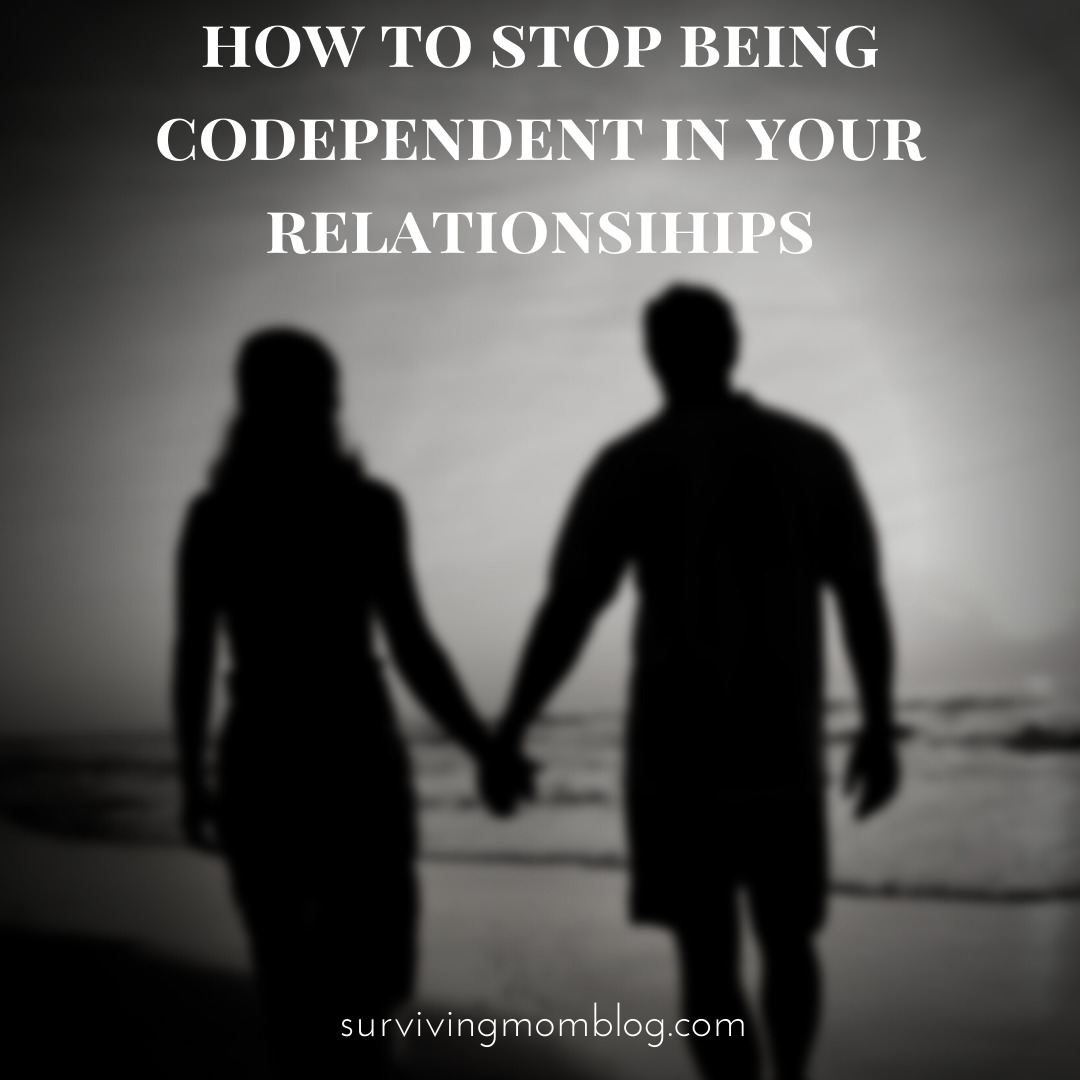
If you missed my story of how I learned to break codependency and stop being codependent, you can read about it here. I also suggest reading the book Codependent No More: How to Stop Controlling Others and Start Caring for Yourself by Melody Beattie.
Codependency is not your fault. The good news is that the things we learned as children do not have to be repeated in adulthood. We can break being codependent and practice a healthier way of having relationships.
The first step is to take a step back from anything that is out of your control. Whether it is your mom, your sibling, your friend, your spouse, or even your child, there are certain things that are simply not within our power (or are right) to fix. This is difficult, but crucial.
Stop codependency by creating healthy boundaries
Establish clear boundaries so that you can be supportive, loving, and encouraging, but not at the expense of your well-being or happiness. Others are entitled to make their own choices, regardless of whether you agree with those choices are not. Likewise, you get to take control of your happiness and make your own choices.
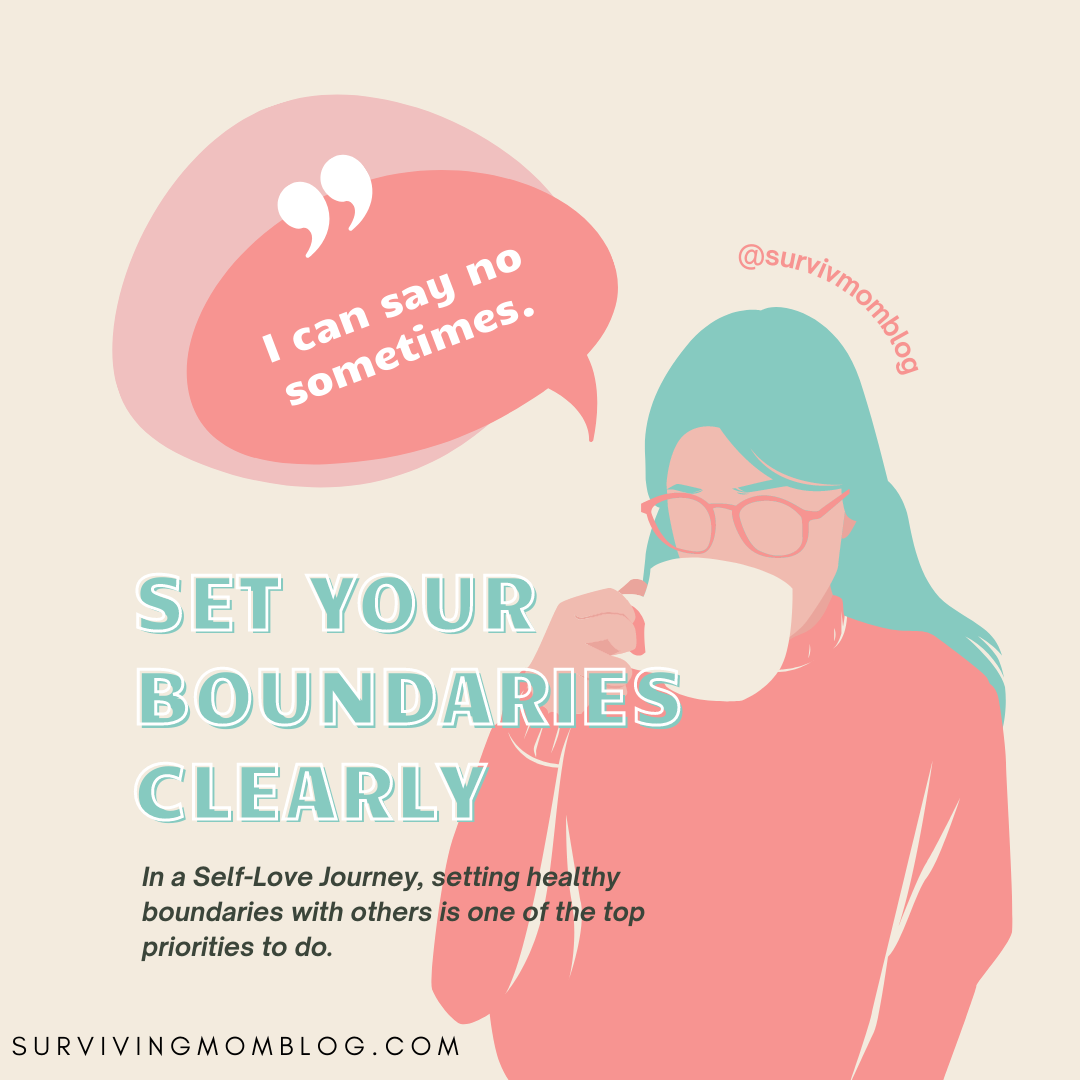
Getting your power back and claiming responsibility for your well-being is not an easy task. It is something that is very much ingrained in our way of thinking and acting. I have to remind myself often that my husband’s sobriety is his responsibility. I am grateful that he has been sober for the last four years, but his sobriety is a choice that he has to make each day.
Healthy relationships require boundaries, which is foreign to many of us. Boundaries are essential so that you can stay in your lane, while clearly expressing what you need for your relationship. You are the only one that can determine which boundaries are needed for your well-being.
Make a list of boundaries, and decide which ones are requests and which ones are non-negotiable. Have an open and honest conversation about your boundaries and allow others to do the same. After all, boundaries are a two-way street.
If a boundary is crossed, then it’s your decision whether to discuss and reinstate the boundary, or if you need to walk away. You cannot force others to respect and provide what you need in a relationship, but you can respect yourself. It is also crucial to understand that you cannot save others, but you can save yourself. This is how you break being codependent.
practice self-care and focus on your needs
Next, stop codependency by focusing on what you want and need to feel good about yourself, completely separate from anyone else. What brings YOU joy? What are YOUR hobbies? Who are YOU as a person? For me, starting this blog has been incredibly healing because it is something that I do that is separate from being a wife and a mom. It is something I am passionate about, and I feel good knowing that I am trying to help others and give support, without trying to change or fix anyone.
It’s a good idea to take time to write down your thoughts and feelings. Keeping a journal gives you an opportunity to focus on your feelings and brainstorm ideas. Speak to a therapist and read books about codependency to help you on your healing journey. Discover your own identity.
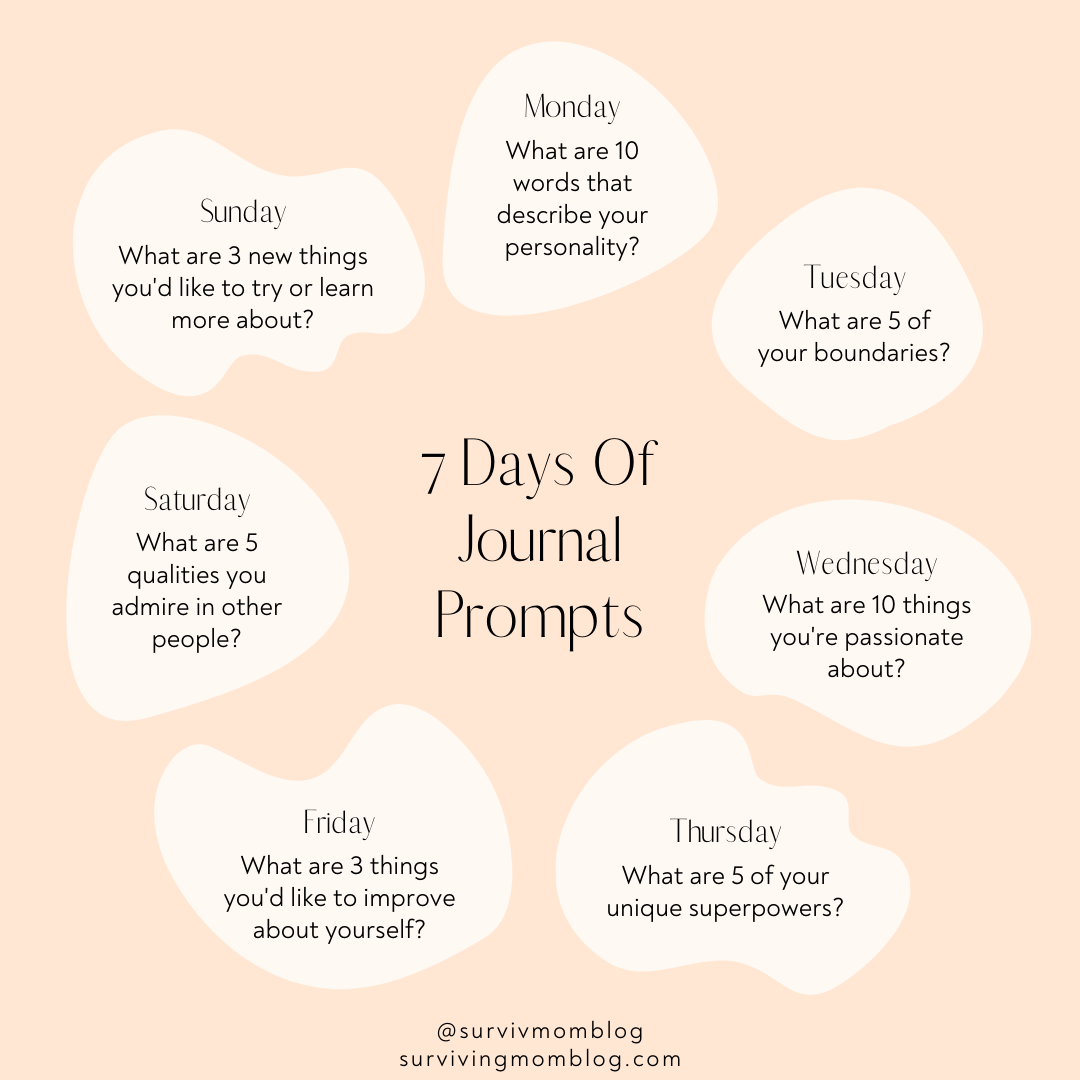
I cannot stress enough that Rome was not built in a day. It will take time to learn new patterns of behavior. It is important to show yourself love and compassion as you navigate the foreign territory of breaking codependent behavior.
Just as codependency is not healthy, the polar opposite isn’t either. Being completely independent doesn’t translate into having genuine relationships. If you aren’t allowing yourself to be vulnerable, then your relationships will lack true intimacy. It is important to have your own identity separate from the ones you love; however, putting up walls and not letting anyone in is the same wolf in sheep’s clothing. Love is about sharing the deepest parts of yourself with another, but not expecting someone to save you.
create interdependence and stop being codependent in your relationships
Interdependence is the goal of any healthy relationship. It allows us to love and support each other, while not expecting the other one to make us feel whole or to change who they are.
My husband and I are each whole on our own, and we have the choice to grow individually and as a couple. That means that if I am feeling sad and hurt, I first try to comfort myself and give myself what I need before I share my feelings with him. I give him the space to try to understand my perspective without forcing him to say or do anything.
Stop codependency by remembering that your happiness is up to you. Just as you can’t save or change anyone, it isn’t anyone’s responsibility to save or fix you. Work on yourself and allow others the opportunity to do the same. Remember to establish clear boundaries to break being codependent. This allows others to choose their own path and make their own choices, but you control what you do with that choice. You also get to choose your own path and healing journey.
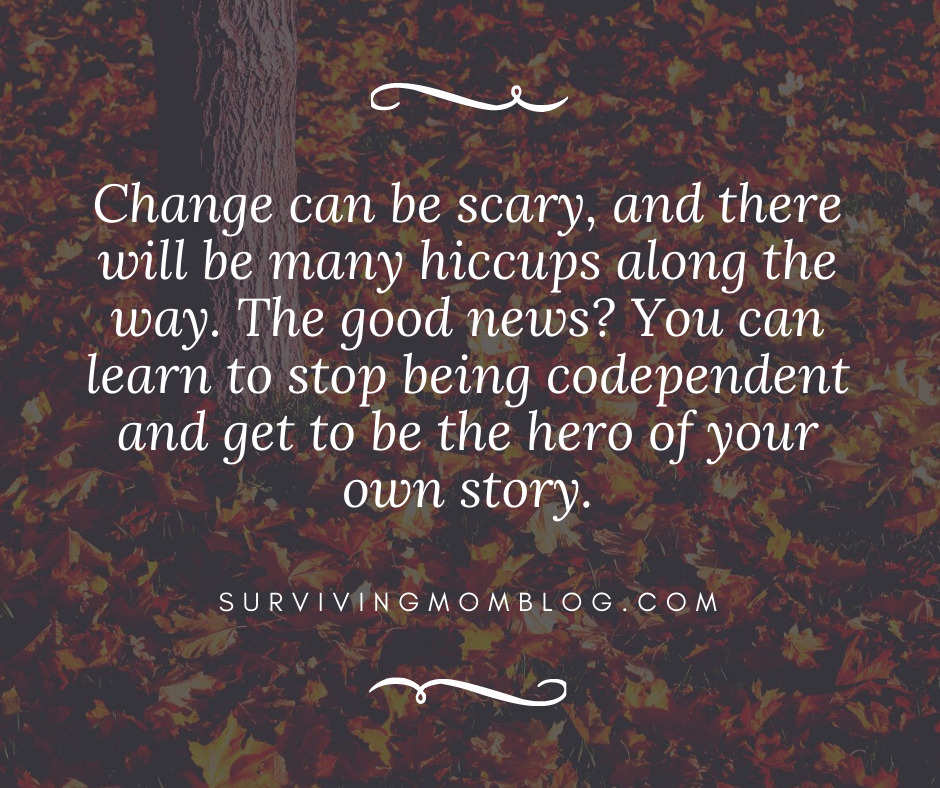
Show love and kindness to yourself and your feelings. Your feelings, thoughts, hopes, and dreams are important and have value because they are yours. Respect and honor them even if others do not.
Interdependence is a foreign concept for many, but a way of living that is possible for all of us. Change can be scary, and there will be many hiccups along the way. The good news? You can learn to stop being codependent and get to be the hero of your own story.
